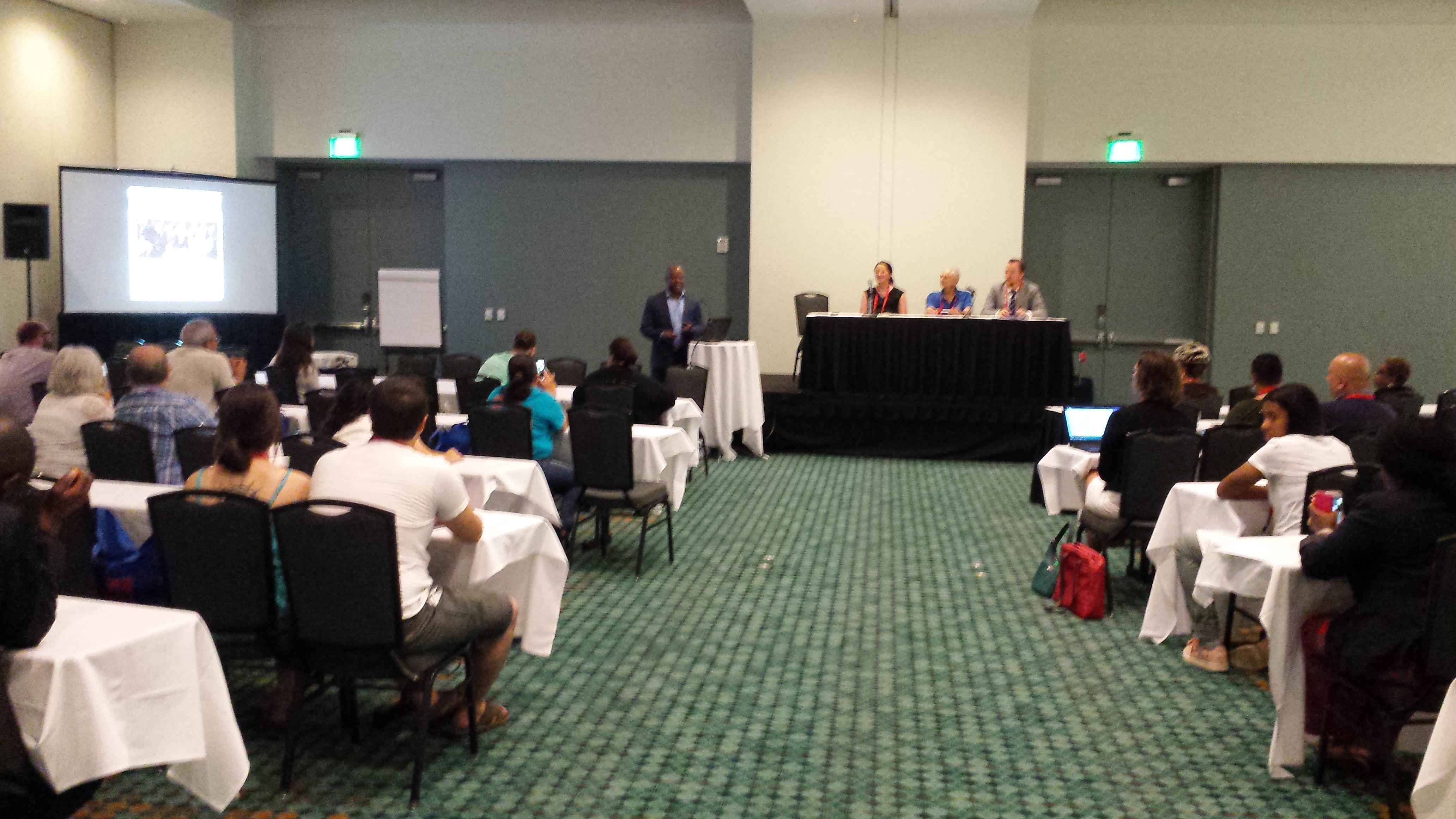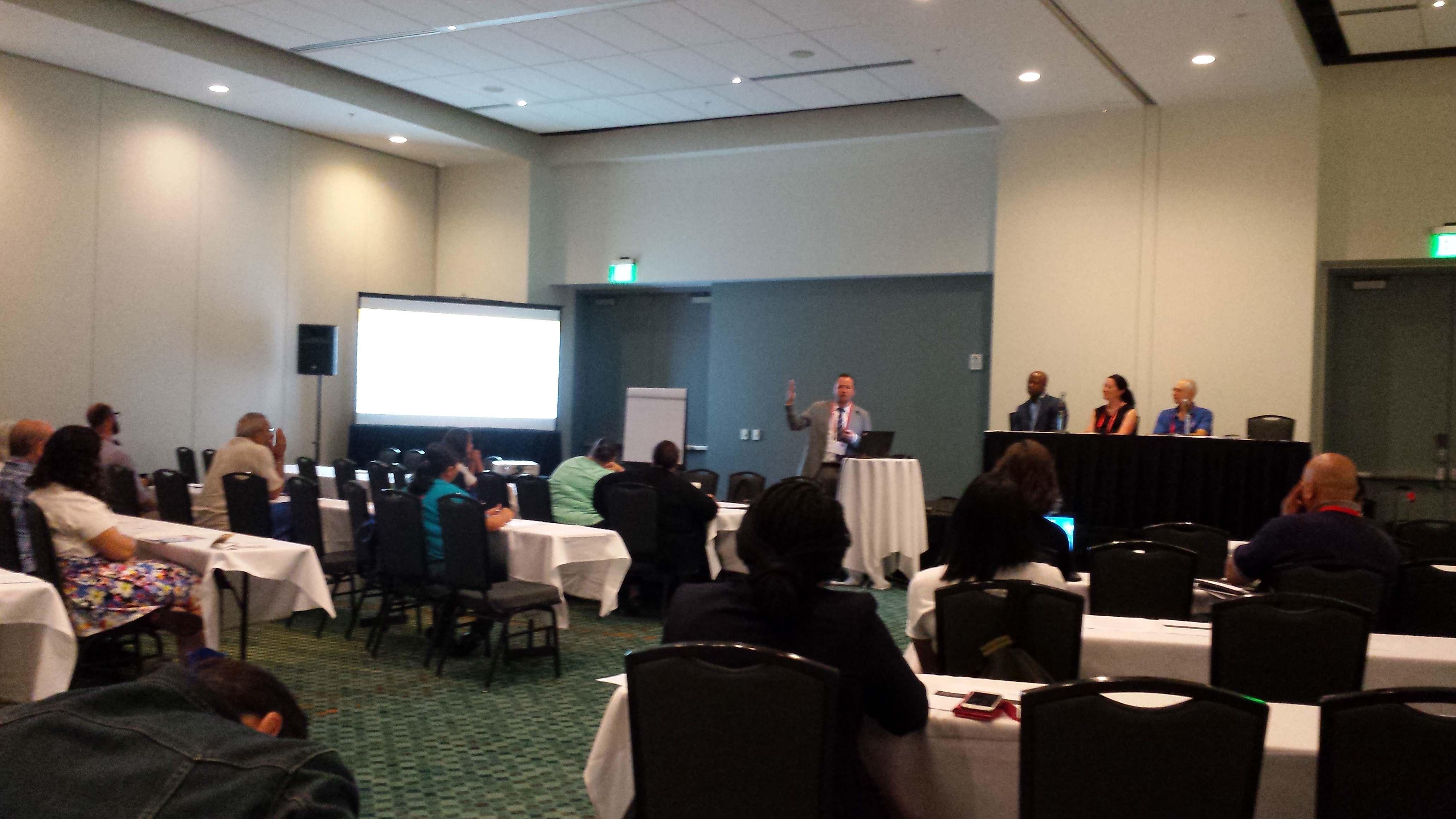
by Anna Nicotera, Basis Policy Research
School leaders from around the country attended the session that the Chess Club and Scholastic Center of Saint Louis convened, Are Your Students Playing Chess? Research Says They Should, at the 2016 National Charter Schools Conference. When we asked attendees to list the first word that comes to mind when they think about what students learn by playing chess, the majority of attendees came up with words like: strategy, critical-thinking, problem-solving, planning, analysis, endurance, and confidence. Not surprisingly, these are the types of skills that new research suggests students gain when learning to play chess and may explain why participating in chess programs is linked with higher student outcomes.
 Many schools are looking for educational programs that teach students important learning strategies to improve academic perseverance and performance in a rigorous and engaging manner. Scholastic chess can serve this purpose. Our conference session provided programmatic details to school leaders interested in incorporating chess into their school days.
Many schools are looking for educational programs that teach students important learning strategies to improve academic perseverance and performance in a rigorous and engaging manner. Scholastic chess can serve this purpose. Our conference session provided programmatic details to school leaders interested in incorporating chess into their school days.
During the presentation, Sean O’Hanlon, Senior Manager of Chess at Success Academy Charter Schools, a network of 41 high-performing charter schools in New York, described how and why the charter schools embedded chess into the weekly curriculum for all students in Kindergarten through 4th grade. At Success Academies, the stated mission of the chess program is: “Guided by teachers who are committed to consistent growth, both pedagogically as well as over the chess board, our scholars learn to think critically, to control their impulses, to make better decisions, and to compete, in chess and in life, with confidence.” Importantly, leaders and teachers at Success Academies believe that chess is critical to student academic success. The belief is that learning chess makes children more well-rounded students, and in practical terms it is less expensive to implement than other activities like art and music.
The structure of the chess program at Success Academy Charter Schools follows these programmatic details:
-
Chess is taught during the school day.
-
Grades K-4 get one 45-50 minute chess lesson every week for the duration of the school year.
-
The chess teacher is a staff member at the school.
-
The chess teacher administers formative assessments aligned with instruction throughout the year to track student progress towards goals.
 Here is an example of detailed end of year goals for Kindergarten:
Here is an example of detailed end of year goals for Kindergarten:
-
Practice good sportsmanship and win and lose gracefully.
-
Know the mechanics of taking turns.
-
Be able to identify all the pieces by name and know how to set up the board.
-
Know all the rules for the King, Rook, and Pawn (excepting en passant).
-
Be able to identify check and escape check with above pieces.
-
Identify illegal moves and be able to communicate appropriately with his or her partner when an illegal move is made.
-
Be able to tell you that checkmate is how you win the game and be able to identify back rank checkmate, checkmate with two rooks, and checkmate with a king and rook against a lone king.
-
Know that when there are only two kings on the board it is a tie game.
-
Use proper chess board terminology and be able to name the squares. Scholars should be able to name all the pieces but knowledge of the rules for Queen, Bishop, and Knight is a plus.


